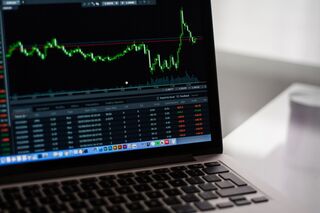Groupthink
Social Psych and Social Stocks
The psychological roots of the recent market volatility.
Posted March 4, 2021 Reviewed by Gary Drevitch
co-authored by Gib Versfeld
In the last two-and-a-half weeks of January, GameStop’s stock price rose 1,900%, AMC’s share price rose over 300%, and Blackberry’s rose 280%. During February each stock quickly fell from those drastic gains, but these share prices have now spiked again.
What do these companies have in common? From a business perspective, they are all struggling retailers facing an evolving consumer landscape. From a societal perspective, they are all stocks discussed and selected by retail investors (individual, non-professional investors) on platforms such as Reddit to drive their prices “to the moon.” What explains this frenzied trading behavior? Why are so many “Reddit Investors” galvanized by the call to “hold the line” on these underperforming companies? A social psychology lens can explain the group dynamics that propel this activity.

Herd Mentality
At the most basic level, the trading behavior of the members of WallStreetBets, the community on Reddit that triggered the spike in stock prices, can be explained by “herd mentality,” an idea posited by 19th-century French psychologists Gabriel Tarde and Gustave Le Bon. As described by Tarde and Le Bon, herd mentality is “the tendency of people to think and behave in ways that conform to the group rather than as individuals, in ways that are emotional, rather than rational.”
Tarde and Le Bon noticed that when people are in crowds, they tend to adopt the group’s “collective mind.” In the context of the stock market and the exuberant rises of GameStop, AMC, and Blackberry, members of the WallStreetBets Reddit exhibited herd mentality. Instead of using rational financial analysis to examine the company’s stocks, retail investors expressed excitement over the possibility that they could drive a share price to unprecedented highs for no apparent reason. On Reddit, users engaged with each other’s posts, often “up-voting” popular comments and replying to like-minded posts that supported the sky-rocketing trend of the stock. These behaviors reinforced the group’s bond, which further drove up the stock prices and created a greater sense of community.
Normative Social Influence
Another critical component of the trading behavior fueling these rapid rises is conformity, specifically normative social influence. Normative social influence occurs when people conform to the group to fit in, feel good, and be accepted. The most famous example is Asch’s line judgment study, in which participants were placed in a group and asked to identify which line segment from a group of three (a, b, or c) was most similar to the fourth line in length. However, the groups included confederates (accomplices of the researcher) who were tasked with selecting a wrong answer. Because of conformity and normative social influence, 76% of participants conformed to group pressure by going along with the confederates and identifying a wrong length line as the one that matched the target line.

We see the same behavior exhibited in GameStop, AMC, and Blackberry’s rapid rises and falls. During the first week of February, the three stocks experienced drastic decreases in their share price. Even so, WallStreetBets community members encouraged each other never to sell and instead to buy more stock. Typically, traders would sell when they had achieved a positive return (buy low, sell high). However, these investors are holding on to the stocks even as their prices fall. Social platforms Instagram, Reddit, and 4Chan, were inundated with users encouraging each other to “hold the line.” What explains this irrational behavior? Retail investors want to fit in with each other and never sell, actions in line with normative social influence. However, it’s possible that ideological principles associated with groupthink could be driving these investors' behavior.
Groupthink
Groupthink, a term coined by William Whyte in 1952, is defined as “the modification of the opinions of members of a group to align with what they believe is the group consensus.” Research by Janis identified three causes of groupthink: when leaders make their opinion clear without room for debate (directive leadership), when actions are secretive (group isolation), and when groups are comprised of members with similar backgrounds or ideologies (group homogeneity).
One of those factors, group homogeneity, is present in the recent abnormal trading activity. A browse through the WallStreetBets Reddit uncovers the following shared ideology: a desire to stick it to the institutional investors who were bailed out following the 2008 financial crises, allowing for “the little guy” to win. On these message boards, a singular perspective is prevalent. There are no signs that members are incorporating outside perspectives, suggestive of group homogeneity. This January, some institutional investors were caught in a “short squeeze” on GameStop. A short squeeze occurs when traders expect a stock price to fall but it actually does the opposite, resulting in significant financial losses. In the case of GameStop and AMC, retail investors relished the opportunity to drive the price higher (and make profits) while institutional investors took huge loses trying to cover their short positions.
This shared rallying call has resulted in Robinhood, the trading app that most online investors use, becoming the most-downloaded free app in Apple’s App store. Robinhood even had to draw credit to support the trading activity, as it did not have the financial reserves necessary to execute the high transaction volume. The increased activity associated with retail investors trading these volatile stocks is evidence of how group homogeneity can upend traditional trading behavior. The shared ideology to challenge Wall Street created a community between retail investors and was a clear sign of groupthink.
Key Takeaway
This post is not meant to serve as investment advice but rather to provide insight into the social and group mechanisms that led to the recent volatile trading activity. Social psychology provides the perfect lens for analyzing and understanding the unusual group trading behavior associated with the rise and fall of GameStop, AMC, Blackberry, and many other stocks. The next time a stock experiences an unexplained shift, see if herd mentality, normative social influence, and/or groupthink may be the driving factor.
This post was co-authored by Gib Versfeld, an Amherst College senior.




